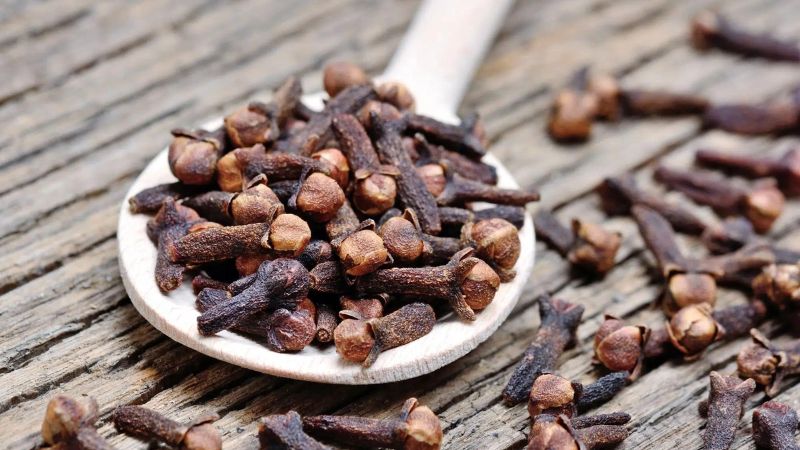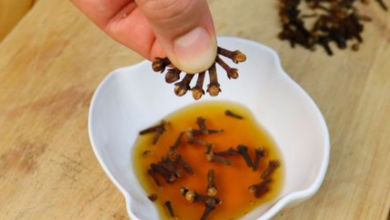
Cloves are widely recognized for their antimicrobial and anti-inflammatory properties, which may provide some support for respiratory health. While they are not a cure for serious respiratory conditions, they can be used as a complementary home remedy alongside professional medical treatment. In this guide, we’ll explore three ways cloves may help support respiratory well-being, along with their potential benefits, precautions, and proper usage.
1. Clove and Honey Infusion for Throat Comfort
Ingredients:
- 5 whole cloves
- 1 teaspoon of organic honey
- 1 cup of water
Preparation:
- Boil the water in a pot until it reaches a rolling boil.
- Add the cloves and let them simmer for about 5 minutes.
- Remove from heat and let it steep for 2 minutes.
- Strain and stir in the honey.
Consumption Instructions:
- Drink this infusion once or twice a day to help soothe the throat.
- If symptoms persist, consult a healthcare professional.
Potential Benefits:
- Soothing Effect: Honey may help coat and relieve an irritated throat.
- Mild Expectorant Properties: Cloves may assist in loosening mucus.
- Antioxidant Support: Both honey and cloves contain antioxidants that may support immune function.
2. Clove, Lemon, and Ginger Syrup for Respiratory Support

Ingredients:
- 10 whole cloves
- 1 lemon (juiced)
- 1 cup of water
- 1 tablespoon of grated ginger
- 1 tablespoon of honey
Preparation:
- Boil the water, then add the cloves and grated ginger. Let it simmer for 10 minutes.
- Strain the mixture and add lemon juice and honey.
- Let it cool before consuming.
Consumption Instructions:
- Take 1 to 2 tablespoons per day as a natural supplement.
- Do not exceed recommended amounts without consulting a healthcare professional.
Potential Benefits:
- Vitamin C Boost: Lemon is rich in vitamin C, which supports the immune system.
- Mild Anti-Inflammatory Effects: Ginger and cloves have natural anti-inflammatory properties.
- Temporary Relief for Congestion: The combination may help clear the airways.
3. Clove and Eucalyptus Steam for Congestion Relief

Ingredients:
- 10 cloves
- 5 eucalyptus leaves
- 1 liter of water
Preparation:
- Boil water in a pot.
- Add cloves and eucalyptus leaves and let them simmer for 10 minutes.
- Remove from heat, cover your head with a towel, and inhale the steam.
Usage Instructions:
- Inhale for 10-15 minutes once or twice a day.
- Do not use this method if you have respiratory conditions like asthma without consulting a doctor.
Potential Benefits:
- Helps Clear Airways: Eucalyptus may aid in opening nasal passages.
- Mild Antimicrobial Properties: Clove and eucalyptus oils have antibacterial effects.
- Temporary Relief from Congestion: Steam inhalation can help loosen mucus.
Precautions & Considerations
- Cloves should be used in moderation; excessive intake may cause irritation or digestive issues.
- Honey should not be given to children under one year old due to the risk of botulism.
- If you have allergies, respiratory conditions, or take medications, consult a doctor before trying these remedies.
- These methods should not replace prescribed medical treatments for respiratory conditions.
Conclusion

Cloves are a flavorful spice with some natural properties that may provide mild respiratory support when used appropriately. However, they are not a cure for respiratory infections or chronic lung diseases. The remedies mentioned here can serve as complementary methods for temporary relief but should not replace professional medical advice. Always consult a healthcare professional before starting any home remedy, especially if symptoms persist.






